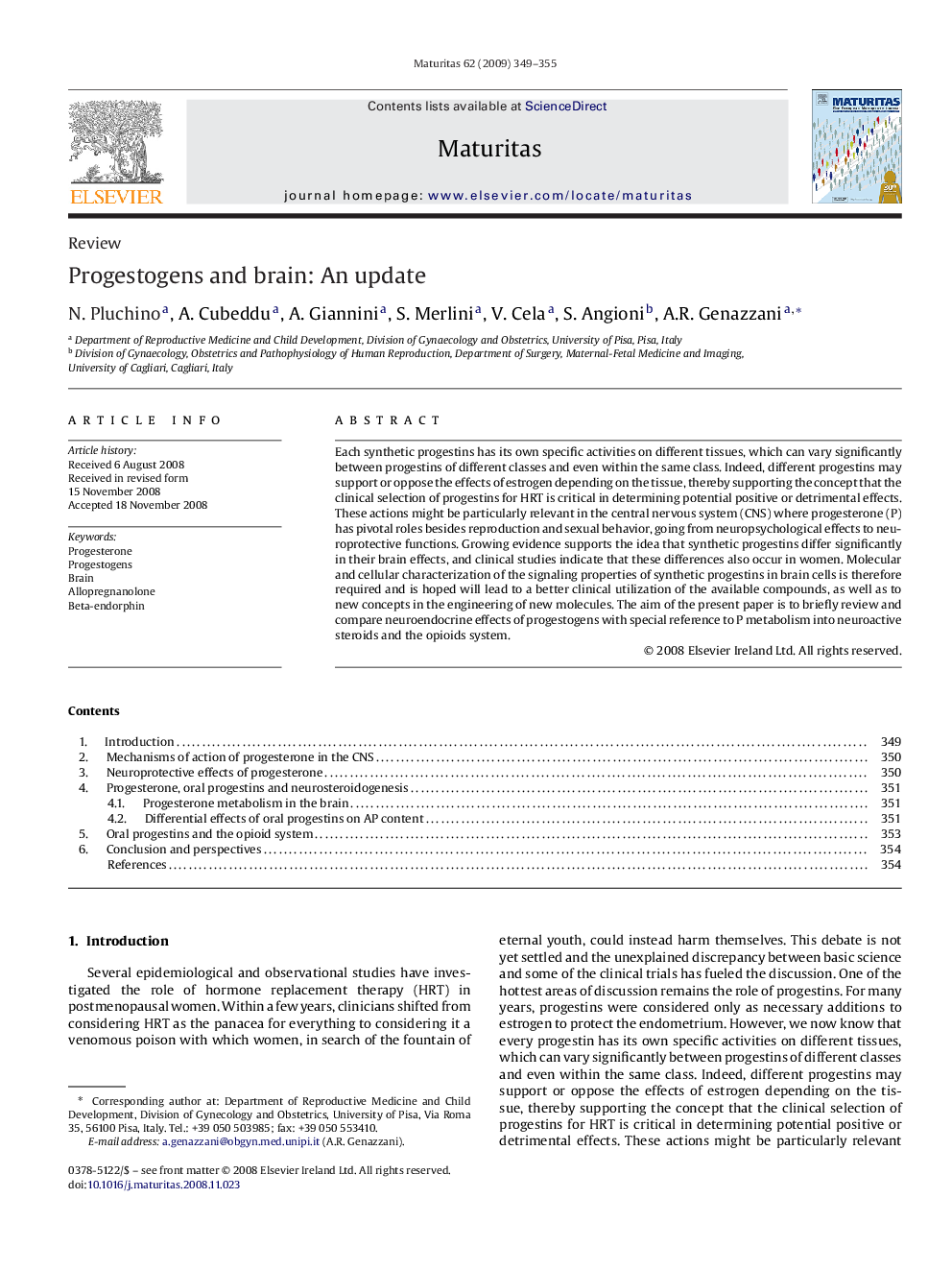| Article ID | Journal | Published Year | Pages | File Type |
|---|---|---|---|---|
| 1918483 | Maturitas | 2009 | 7 Pages |
Each synthetic progestins has its own specific activities on different tissues, which can vary significantly between progestins of different classes and even within the same class. Indeed, different progestins may support or oppose the effects of estrogen depending on the tissue, thereby supporting the concept that the clinical selection of progestins for HRT is critical in determining potential positive or detrimental effects. These actions might be particularly relevant in the central nervous system (CNS) where progesterone (P) has pivotal roles besides reproduction and sexual behavior, going from neuropsychological effects to neuroprotective functions. Growing evidence supports the idea that synthetic progestins differ significantly in their brain effects, and clinical studies indicate that these differences also occur in women. Molecular and cellular characterization of the signaling properties of synthetic progestins in brain cells is therefore required and is hoped will lead to a better clinical utilization of the available compounds, as well as to new concepts in the engineering of new molecules. The aim of the present paper is to briefly review and compare neuroendocrine effects of progestogens with special reference to P metabolism into neuroactive steroids and the opioids system.
